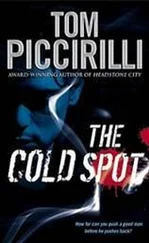Unwittingly I had allowed my rune literacy to impress Thrand in a way that was to have painful consequences. When he was ready to return to his own farm, he suggested to Snorri that I go with him and become his pupil in seidr skills. Snorri summoned me and, watching me with those quiet grey eyes, said, 'Thrand has offered to take you on as a pupil. I believe that this is your chance to develop a talent that you were born with and which may yet compensate for the disadvantages you have already faced in your young life. For that reason I am closing my house to you and sending you away.'
Thus I began to appreciate how the acquisition of knowledge can mean pain and sacrifice, for I was heart-broken to be parted from my adored Hallbera. Years later, long after my departure from Snorri's household, I learned that she married an eminently suitable husband, the son of a neighbouring landowner whose help Snorri needed at a session of the Althing. Her young man was ideal - respectable, well-connected, reliable. He was also decidedly dull. I am sure that Hallbera was very happy with him. The last I heard was that they had their own family of seven or eight children, lived on a well-run farm on the Westfjords, and were similarly looking for suitable matches for their numerous offspring. On the few occasions when I imagine myself as that young man Hallbera could have married, I wonder whether it was Hallbera's wish to have a more settled future that made her marry her worthy husband, or whether once again it was Odinn's intervention that led her family to judge me to be no more than a pleasant and temporary diversion for their fourth daughter.
THE SUMMER THAT I spent with Thrand at his farm in the uplands behind Laxadale was perhaps the most formative period of my life.
Thrand lived by himself on a small homestead, no more than a single cabin with a barn nearby. His dwelling was sparsely furnished with only a couple of stools, a pair of wooden cots, his iron cooking pot and griddle — he did all his own cooking - and a few large storage chests, always kept locked. The walls of his cabin were bare except for several foreign-looking wall hangings with strange patterns, which I could not decipher, and a row of pegs from which Thrand hung his weapons and various satchels and cloth bundles containing his seidr materials. The place was so orderly that it was stark, and this reflected the character of its owner. My teacher in seidr was reserved and self-controlled to the point of austerity and as a result he was very difficult to get to know. I am sure he never meant to seem unfriendly but if I plucked up enough courage to ask a question, the answer was sometimes so slow in coming that I feared he thought me stupid or that he had not heard the question. When the answer came — and it always did, though I might have to wait until the next day - it was terse, accurate and clear-cut. It was to take me a long time to grow fond of Thrand, but from the start I respected him.
He was a methodical teacher. Patiently he built on the foundation of the knowledge that Tyrkir and Thorvall had imparted. Sometimes he found it necessary to correct errors. My earlier mentors had occasionally muddled the roles of the Aesir, the family of Gods, and at other times I had misunderstood their lessons. So Thrand began by putting my chaotic knowledge in some sort of order and then went on to expand and deepen the details. I progressed from my basic knowledge of the main Gods and Goddesses of the Aesir and Vanir, and became aware of an entire pantheon, and this in addition to the Norns and light-elves and dark-elves and dwarves, and frost giants and the otherworld creatures and the roles they played in the ancient cosmology. 'Everything interlocks,' Thrand was fond of saying. 'Think of the braiding roots of the World Tree, where one root tangles with another, and then reaches out to a third, and then doubles back and binds on itself, or the spreading branches above which do the same. Yet all the roots and branches have a function. They sustain Yggdrasil and they are Yggdrasil. This is how it is with ancient lore. If you have the foundation knowledge, you can follow the path of a single root or just one strand, or you can stand back and see the whole pattern.'
Committing the lore to memory was surprisingly easy. It seemed that every deed, every deity, every detail, had been set into a language that flowed and rippled seductively, or laid out in lists that marched to a steady beat. Even now, half a century later, I can count off all forty-eight names of Odinn - from Baleygr, Harbardr and Herblindi, to Herian, Hialmberi, Thekkr, Thriggi, Thundr, Unnr, Viudurr, Yrungr, and so forth. The ones that still make my heart beat faster when I hear them in my head are: Aldafadr, All-Father; Draugadrottin, Lord of the Dead; Grimnir, the Masked One; Farmognudr, Maker of Journeys and Gangleri, the Wanderer.
Tyrkir and Thorvall had told me the simple tales that illustrate the deeds of the Gods - that the earth quakes when Loki writhes in his bonds, that the gales arise from the flapping wings of the great eagle giant Hraesvelg, and that lightning is the flash of Mjollnir when Thor hurls his hammer. Now Thrand placed these tales in their wider context. He explained the relationship between deeds past and the events that still lie in the future, and how at their intersection lies what happens today. And always he emphasised that everything interweaves, so that while those who were gifted with second sight might look into the future, there was little we could do to avert what had been ordained by the Norns. Those three supernatural women hold the ultimate power, for they have decided the fate of every living creature and even of the Gods themselves.
'The greater pattern cannot be altered,' Thraud emphasised to me. 'Even the Gods themselves know that they must inevitably face Ragnarok and the destruction of the world. With all their power they can only delay that fatal time, not avoid it. How much less can we, mere mortals, alter the web that the Norns have spun for us or the marks they have cut in the timber of our lives.'
Thrand was a firm believer in divination. If fate was set, then it could be revealed by skilled interpretation. He owned a casting set of rune blocks, carved from whalebone and yellow with age. He would spread out a white sheet and throw the blocks on the sheet like dice, then puzzle over the way the symbols fell, reading the message in their random patterns and then explaining their symbolism to me. Often the message was obscure, even more frequently it was contradictory. But that, as he explained to me, was in the nature of the runes themselves. Each owned two meanings, at the very least, and these meanings were opposites; whether they occurred in light or dark conjunctions determined which was the correct sense. I found it all very confusing, though I managed to grasp most of the basic principles.
Galdrastafir, the rune spells, were more straightforward and reminded me of the smith's galdr that Tyrkir had taught me. Thrand would take practice pieces of timber and show me how to carve correctly the sequence of runes, dividing my lessons into categories: mind runes for bringing knowledge, sea runes for safe journeys, limb runes for healing, speech runes to fend off revenge, the helping runes for childbirth. 'Don't be surprised if they are ineffective sometimes,' he warned me. 'Odinn himself only learned eighteen rune spells when he was hanging on Yggdrasil, and we are presumptuous to think that we can achieve more.' The accuracy of cutting was not all, he stressed. Every stave had its own spoken formula, which I had to recite as I made the mark, and Thrand made me repeat the formula until I was word-perfect. 'Speak the words right,' said Thrand, 'and you will not have to resort to such tricks as rubbing the marks with your own blood to make the spell more potent. Leave such devices to those who are more interested in doing harm with the rune spells, not achieving good.'
Читать дальше








